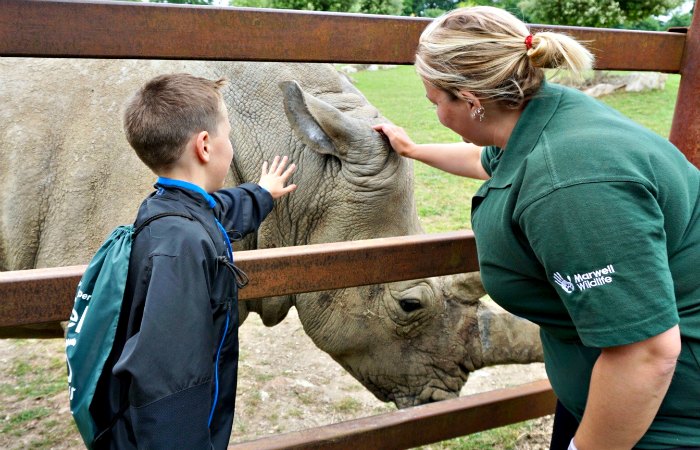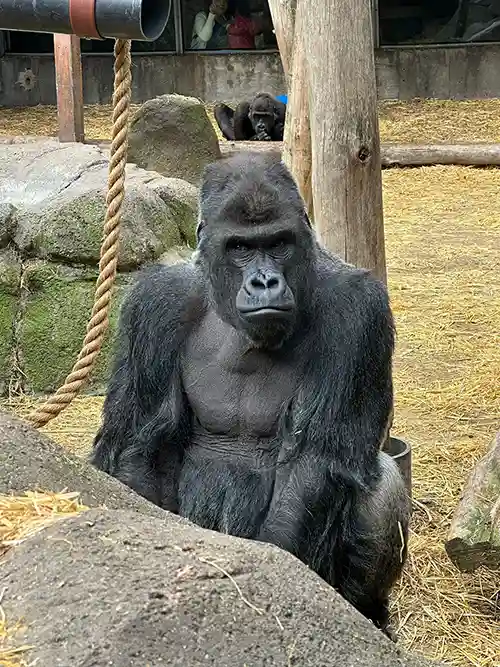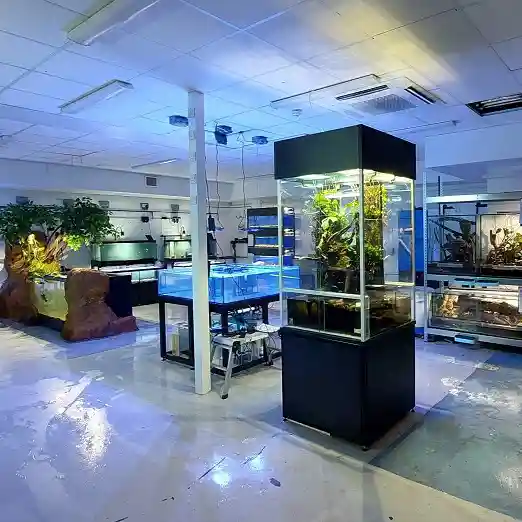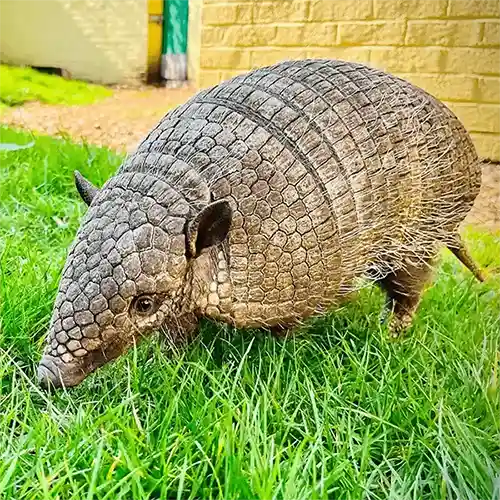How To Become A Zoo Keeper?
페이지 정보
작성자 Jorja 댓글 0건 조회 17회 작성일 25-02-06 01:05본문

"The success of a country and its moral development can be judged by the way its animals are dealt with." - Mahatma Gandhi

Do you love animals and imagine working in a zoo? Zoo keepers are key in protecting wildlife and caring for animals. At locations like the Zoological Society of London (ZSL), over 20,000 animals get the care they need from specialists.

To become a zoo keeper, you require hard work, education, and a love for animals. This job is exciting, letting you deal with numerous types and help with crucial preservation work. If you're into wildlife or animal welfare, zookeeping might be ideal for you.
Beginning your zoo keeper profession means learning what's . This guide will cover education, experience, and more. It's all you require to know to begin a satisfying zookeeping profession.
Comprehending the Role of a Zookeeper
Exploring what a zookeeper does exposes a role filled with difficulties and rewards. They concentrate on animal welfare and preservation. Zookeepers strive to keep animals healthy and pleased in their care.
Daily Responsibilities and Tasks
A zookeeper's day is filled with important tasks:
- Preparing meals that fulfill each animal's dietary needs
- Cleaning enclosures to keep them clean and safe
- Monitoring animal health and behaviour
- Offering medications and treatments as required
- Developing activities to keep animals psychologically sharp
Workplace and Conditions
Zookeepers work outside in all type of weather. They manage both indoor and outside spaces. The task requires being healthy and able to handle the needs of taking care of animals.
"Being a zookeeper is more than a job - it's an enthusiastic commitment to animal care and preservation."
Types of Animals and Specialisations
Zookeepers can specialise in numerous animal groups:
- Primates
- Big cats
- Marine mammals
- Reptiles
- Birds
Your function might involve working with 2-5 different animal species. This requires a lot of understanding and the ability to adapt.
Vital Skills and Personal Qualities for Zoo Keeping
To be a leading zookeeper, you require more than simply a love for animals. Your task will be difficult and need you to handle animals and people well. You'll likewise require to understand animal behaviour.
What zoos look for in individuals includes:
- Exceptional persistence and emotional durability
- Strong physical conditioning and stamina
- Eager observation skills
- Ability to stay calm under pressure
- High level of compassion towards animals
Getting hands-on experience is crucial to mastering this role. You'll need to show:
- Advanced understanding of animal care strategies
- Proficiency in animal handling and security protocols
- Effective communication with both animals and zookeeper human visitors
"A great zookeeper links science, empathy, and preservation in every interaction with animals."
You should learn about animal nutrition, behaviour, and standard veterinarian care. Most zookeepers learn through training, offering, zookeeper and ongoing learning.
Zookeeper work is not just a job. It's a huge commitment to teaching about wildlife and assisting conservation. Your passion and hard work will make you stick out in this fulfilling profession.
How to Become a Zoo Keeper
Beginning a career as a zookeeper requires cautious preparation and education. You need to first understand the instructional needs and training courses. These will turn your love for animals into a task.
Educational Requirements
To be a great zookeeper, you need a strong scholastic base. A lot of tasks try to find specific credentials:
- At least 5 GCSEs at grade 4 or zookeeper above, consisting of English, mathematics, and science
- A levels or college credentials
- A college degree in biology or animal science
- Level 3 Diploma in Animal Management
Essential Certifications
Getting special certifications can truly assist you in your zookeeper career. Important ones include:
- Diploma in Management of Zoo and Aquarium Animals (DMZAA)
- Zookeeping Level 3 Diploma (RQF)
- Animal managing certificates
- First aid qualifications
Training Programs and Apprenticeships
Getting hands-on experience is type in zookeeper training. Many locations provide great opportunities:
- Unpaid apprenticeships at wildlife parks
- Internship programs at widely known zoos
- Practical training at locations like Colchester Zoo and Dartmoor Zoo
- Volunteering to gain real-world abilities
Pro pointer: Create a comprehensive portfolio to show your animal care abilities. It will help you in task applications.
Building Relevant Experience in Animal Care
Gaining hands-on experience is crucial for those wanting to be zookeepers. The task is extremely competitive. So, it's important to start developing a strong base in animal care.
Your journey begins with finding ways to work directly with animals. This is a tactical step.
"Experience is the very best instructor in animal care" - Wildlife Conservation Experts
Here are effective ways to acquire experience dealing with animals:
- Volunteer at local animal shelters to develop basic animal dealing with skills
- Seek internships at wildlife rehabilitation centres
- Check out part-time positions at veterinary clinics
- Contact your local zoo for possible volunteer opportunities
Offering is a fantastic way to learn more about animal behaviour and care. Many zoos and animal shelters are looking for individuals who wish to find out. These locations offer terrific opportunities to get hands-on experience and show your devotion to animal welfare.
Here are some tips to take advantage of your experience:
- Keep a record of your abilities and interactions
- Get in touch with professionals in animal care
- Request recommendations and letters of recommendation
- Stay consistent and show your real enthusiasm
Keep in mind, useful experience makes you stand apart in the zookeeping world. Every time you deal with animals, you discover more. This increases your possibilities of getting a job in animal care.
Career Pathways and Professional Development
Beginning a career as a zookeeper is amazing. It uses numerous possibilities to grow and specialise. Your journey begins with understanding the various courses in this field.
Entry-Level Positions
Entry-level jobs in zookeeping are a fantastic start. They provide you hands-on experience. Zoos look for prospects with:
- Level 2 Diploma in Animal Care (minimum qualification)
- GCSEs in English and a clinical topic
- Volunteer experience at animal shelters or farms
Profession Progression Opportunities
As you acquire experience, your career can grow. You can go up to:
- Junior Keeper
- Senior Keeper
- Group Leader
- Specialist Roles
"Continuous learning and practical experience are key to advancing in your zookeeping profession."
Specialised Roles
You can likewise select unique locations like:
- Conservation breeding programs
- Animal training
- Wildlife research study
- Educational outreach
About 25% of zookeepers get advanced degrees in zoology or animal preservation. Getting Level 4 qualifications can enhance your chances for senior functions and research study.
Working Hours and Physical Demands
Becoming a zookeeper means you'll work more than just regular hours. You'll deal with tough physical difficulties and need to be flexible, consisting of weekends and holidays. Zoos are open every day, so you'll often work when others unwind.

"Zoo keeping is not a typical 9-to-5 task-- it's a lifestyle of dedicated animal care and dedication."
This job is physically demanding. You'll work outside in any weather, raising heavy items over 50 pounds. Your jobs might consist of:
- Early early morning feeding schedules
- Cleaning up animal enclosures
- Preparing specialised diets
- Performing medical examination
- Keeping complex environments
Shifts can start as early as 5 AM and go late into the night. You'll be on your feet the majority of the time, moving between animal zones. Weekends and holidays are part of the job, requiring great deals of endurance and commitment.
Despite the challenges, this task has great benefits. You'll grow strong, both physically and emotionally. You'll also make remarkable connections with incredible animals.
Health and Safety Considerations
Being a zookeeper includes its own set of challenges. It's important to know how to keep both animals and staff safe. This implies following strict health and safety rules.
Zookeepers deal with a distinct environment where safety is essential. Studies reveal that health and safety are now as important as the zoo's main work.
Threat Management Strategies
There are numerous ways to handle dangers in zoos:
- Daily checks of animal enclosures for zookeeper threats
- Counting animals at the start and end of shifts
- Viewing how visitors act near animals
- Being ready for emergencies
Animal Handling Safety Protocols
Knowing which animals are most harmful is crucial. Big animals like rhinos can be very dangerous. There have actually been cases where zookeepers got seriously hurt.
Safety isn't practically wearing gear - it's about understanding animal behaviour and staying alert.
Personal Protective Equipment
Zookeepers require to wear the right gear, consisting of:
- Special gloves for managing animals
- Strong shoes for grip and security
- Clothing that safeguards versus bacteria
Getting vaccinated against illness like hepatitis B and rabies is likewise crucial. It assists keep zookeepers healthy in their tough job.
Salary Expectations and Job Market
Considering a career in zoo keeping? It's important to learn about salaries and the task market. The field is growing, with more opportunities in the UK.
Let's look at what zoo keepers can make at various phases:
- Entry-level zookeepers begin at about ₤ 14,000 a year
- Certified ones make in between ₤ 16,000 and ₤ 22,000
- Senior zookeepers can earn approximately ₤ 30,000 or more
The task outlook for zookeeper zoo keepers is good. The sector is expected to grow by 5% in the UK by 2029. This implies around 3,910 brand-new tasks will be readily available.
"The Association of Zoos and Aquariums supports professional development for zoo keepers," a report states.
Salaries differ based on several things:
- Experience level
- Expertise
- Where you work
- The zoo's size and type
While the pay may not be high, the joy of working with animals is priceless. The typical salary is around ₤ 17,000. However, overall profits can be in between ₤ 13,000 and ₤ 27,000 a year.
Conclusion
Starting a career in animal care is an amazing journey. It requires dedication, passion, and a love for learning. With over 350 zoos and wildlife locations in the UK, there are many task chances. You'll get to work with fantastic animals and help safeguard wildlife.
To be a zoo keeper, you require more than just love for animals. You need to have a mutual understanding of biology, be able to interact well, and constantly wish to discover more. You'll gain hands-on experience, discover animal welfare, and develop a deep regard for nature. About 3,000 people in the UK have found fulfilling careers in this field.
Your success in zoo keeping comes from mixing science with a love for animals. Whether you're interested in mammals, birds, or marine life, this job lets you help with conservation. Every day will bring brand-new challenges and discovering opportunities that will enhance your skills and knowledge.
If you like animals and want to help safeguard wildlife, zoo keeping might be for you. Handle the difficulty, remain curious, and turn your enthusiasm for animals into a fulfilling career.
댓글목록
등록된 댓글이 없습니다.